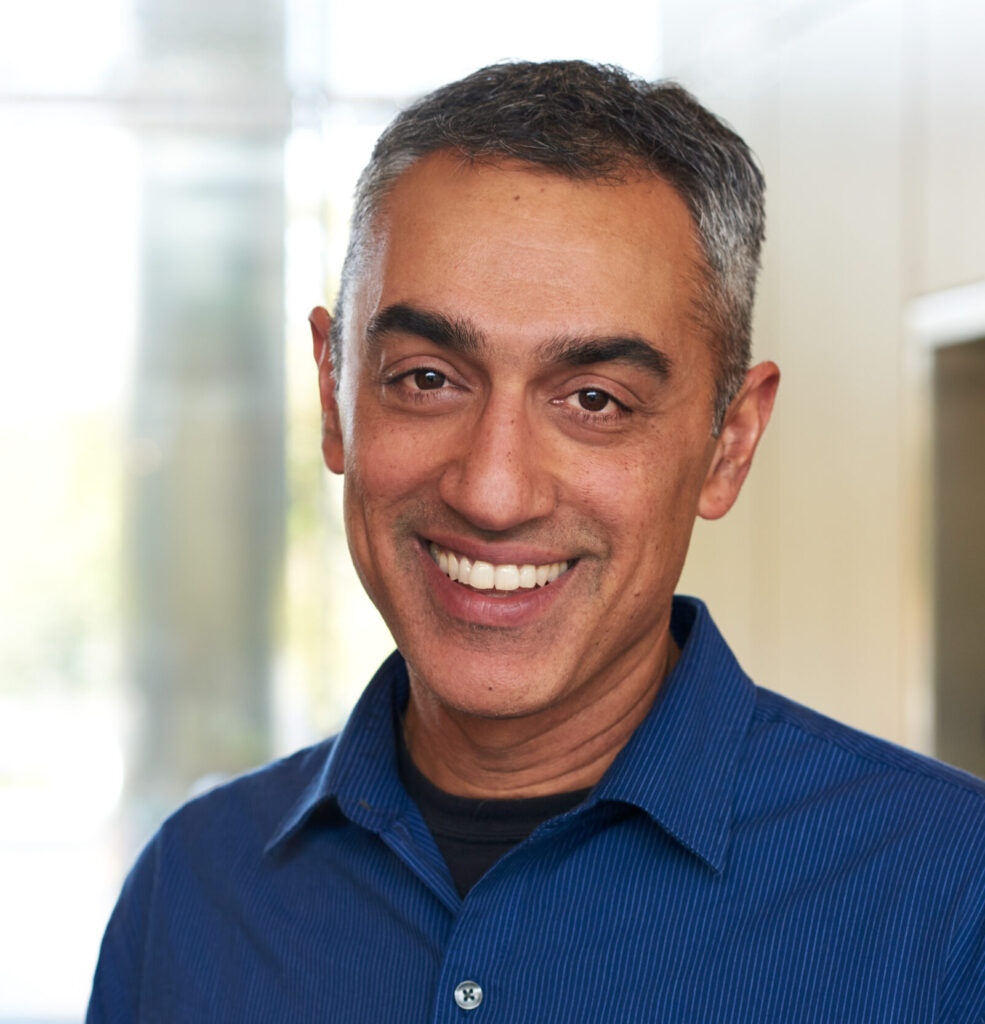
Manu Gulati has been immersed in the fields of electrical and computer engineering for over 30 years, in both academic and nonacademic capacities. A love for problem-solving and engineering has underscored his entire career. It began with a bachelor’s degree in electrical engineering from the Indian Institute of Technology, Delhi, in 1992, followed by a master’s degree in electrical and computer engineering from UCI in 1995.
Upon graduating from UCI, Gulati moved to the Bay Area to begin his career as a chip designer, initially as a CPU microcode engineer at a small startup in Santa Clara. That subsequently led to roles in various disciplines, covering different aspects of chip design, like verification, physical design, modeling and front-end design, among others. Armed with this versatility, Gulati became chip lead of security chips at Broadcom.
A pivotal point in his career came when he left Broadcom to become an SOC architect at Apple. He became the lead SOC architect at Apple and spent nearly eight years directing the architecture of chips that powered iPhones and iPads. Given the explosive growth of these consumer devices over the last 15 years, his work at Apple turned out to be the one with impact to the largest number of end-users. If you owned an iPhone or iPad from 2012 to 2019, you had a device whose architecture stemmed from him and his team at Apple.
When Google aspired to build their own silicon for first-party phones, they selected Gulati to be the lead architect. His work at Google began the trend of in-house silicon for Google’s own phones, which continues to this day.
The roles at Apple and Google in particular helped Gulati realize one of the main professional goals he set for himself early in his career — to take large complex problems and find meaningful yet simple solutions to them. Gulati believes strongly in the tenet that if you cannot explain the essence of your solution to a layperson, you’ve probably made it too complex. Nowhere is that truer than in large vertically integrated systems like mobile phones.
A love for problem-solving has led Gulati to be a relentless innovator over the years. He has authored close to 100 patents covering numerous areas of chip design and methodology.
Eventually, at the age of 48, the startup bug bit Gulati. He and two of his Apple colleagues started Nuvia, a company focused on high performance CPUs and chips for datacenters in 2019. There were some challenges along the way, like trying to do a large fundraiser at the start of the coronavirus pandemic, when companies and investors alike were clamming up. They also had to contend with a lawsuit (however without merit). In the end, the three founders’ tenacity and focus paid off; Nuvia exited with a sale to Qualcomm two years later for $1.6 billion. Since then, Gulati has been vice president of engineering at Qualcomm, where the focus of his team is to change the CPU landscape of the industry.
Gulati believes in education as an equalizer, especially having come from a relatively humble background himself. He feels he owes a big debt to the educational institutions that molded him. He has been repaying this debt by “paying it forward” as they say. He has done hands-on work at elementary schools for the underprivileged, donates every year to educational causes (including UCI), and most recently has become a founding member of a new university in India, that aims to re-imagine the way technology is taught, to create effective and well-rounded engineers who are equipped to have an impact on the real world.
Gulati’s greatest joys in life are his wife Dolly and two boys named Kunaal (9) and Kabir (6), who motivate him to stay youthful and fit.